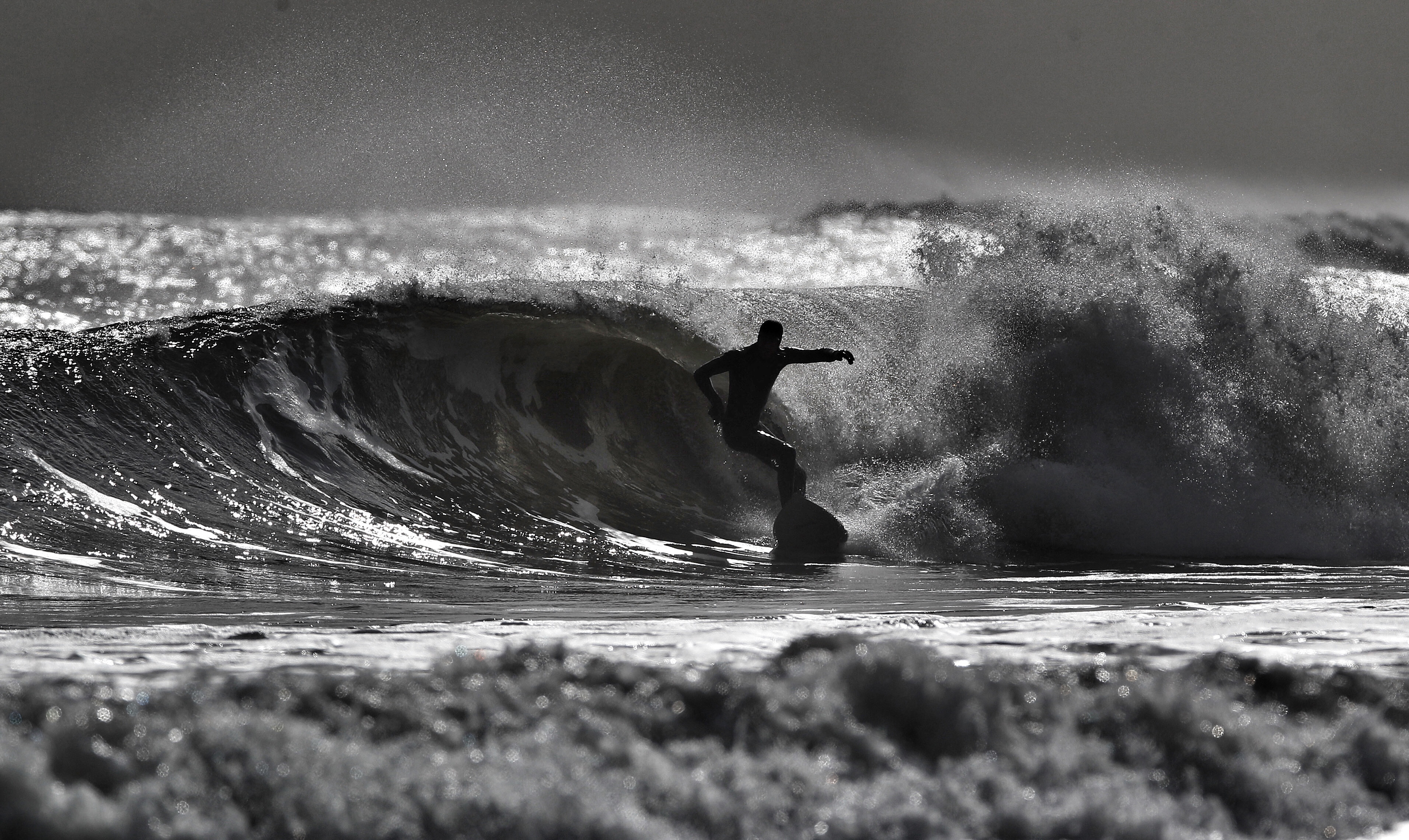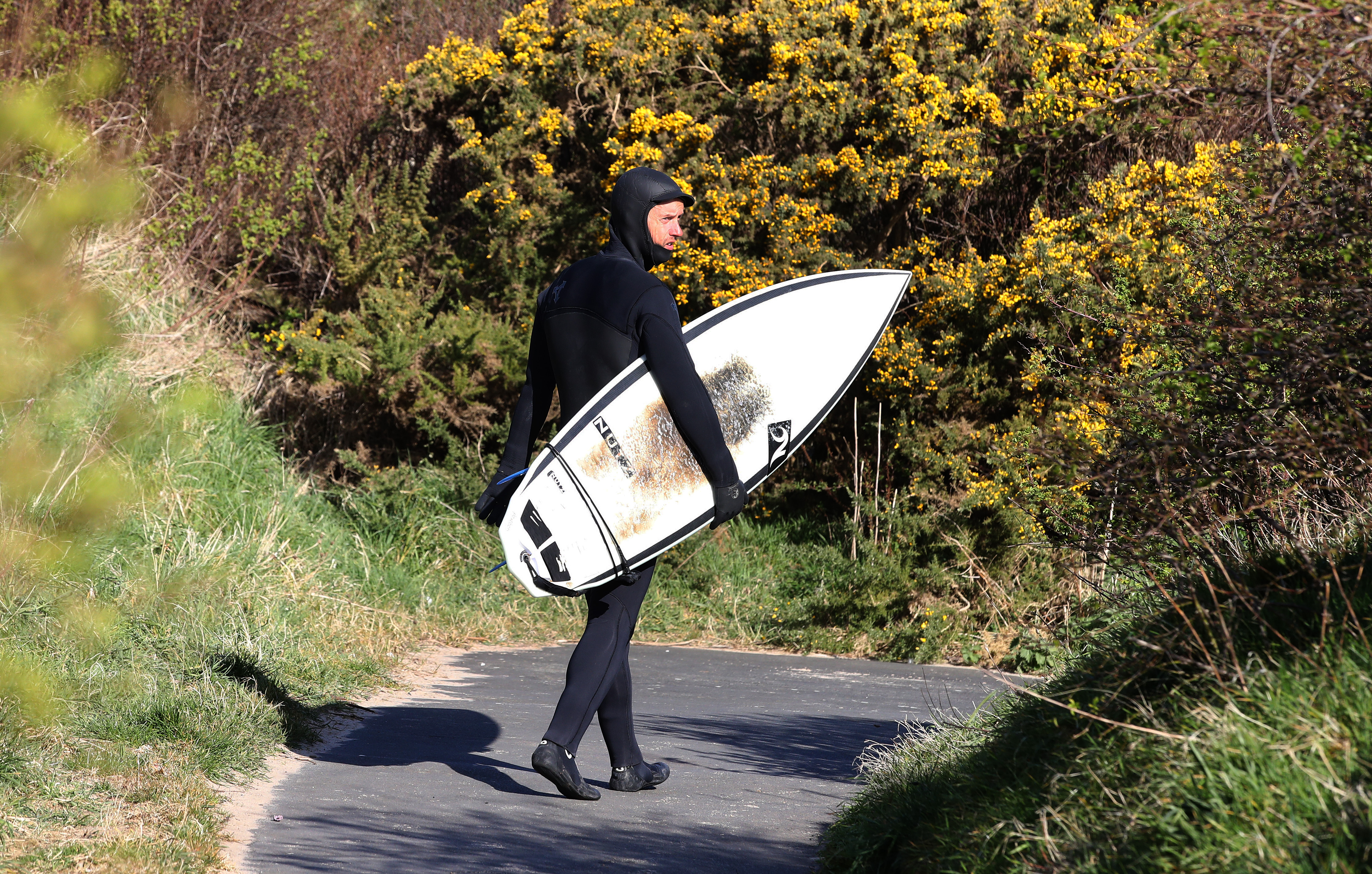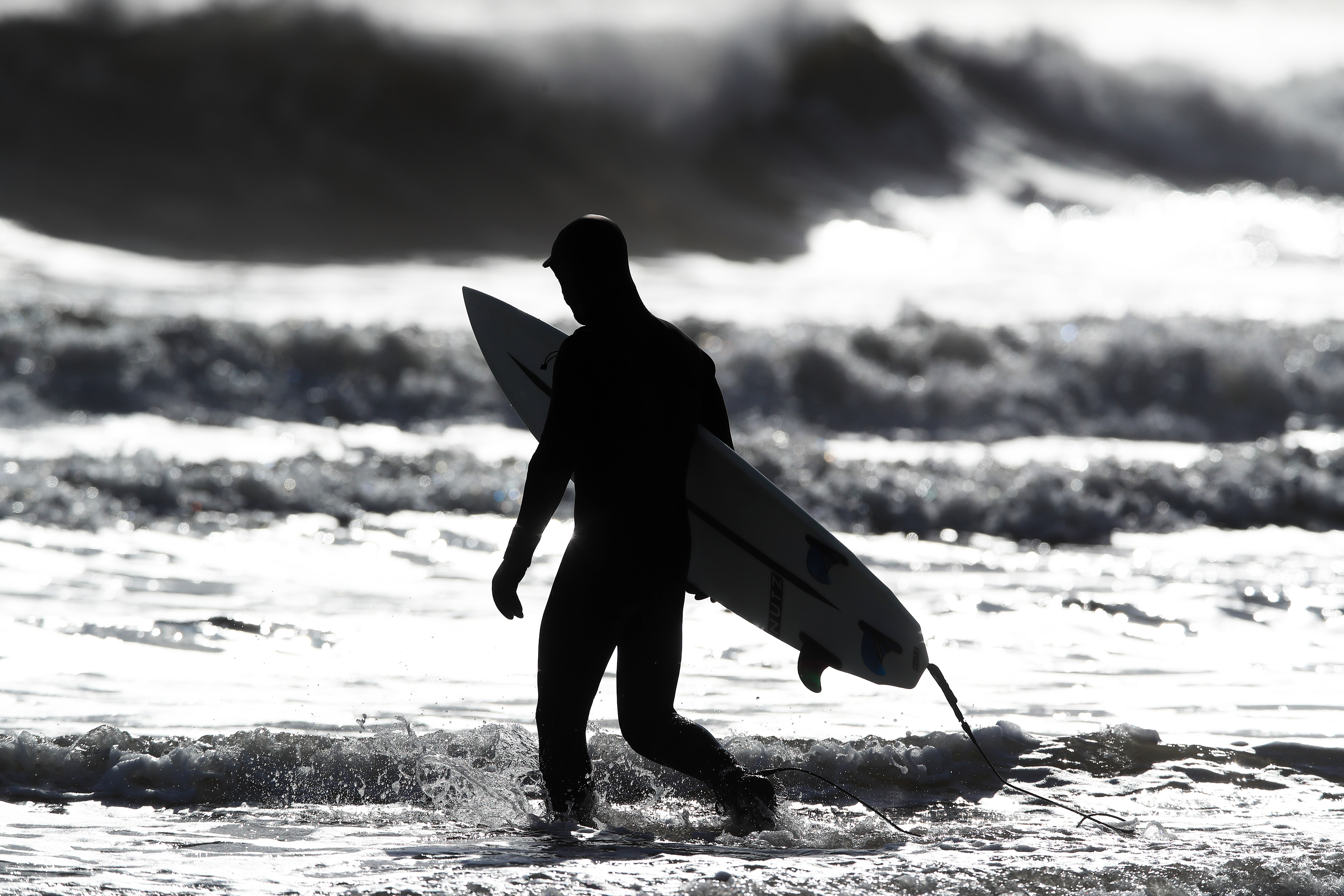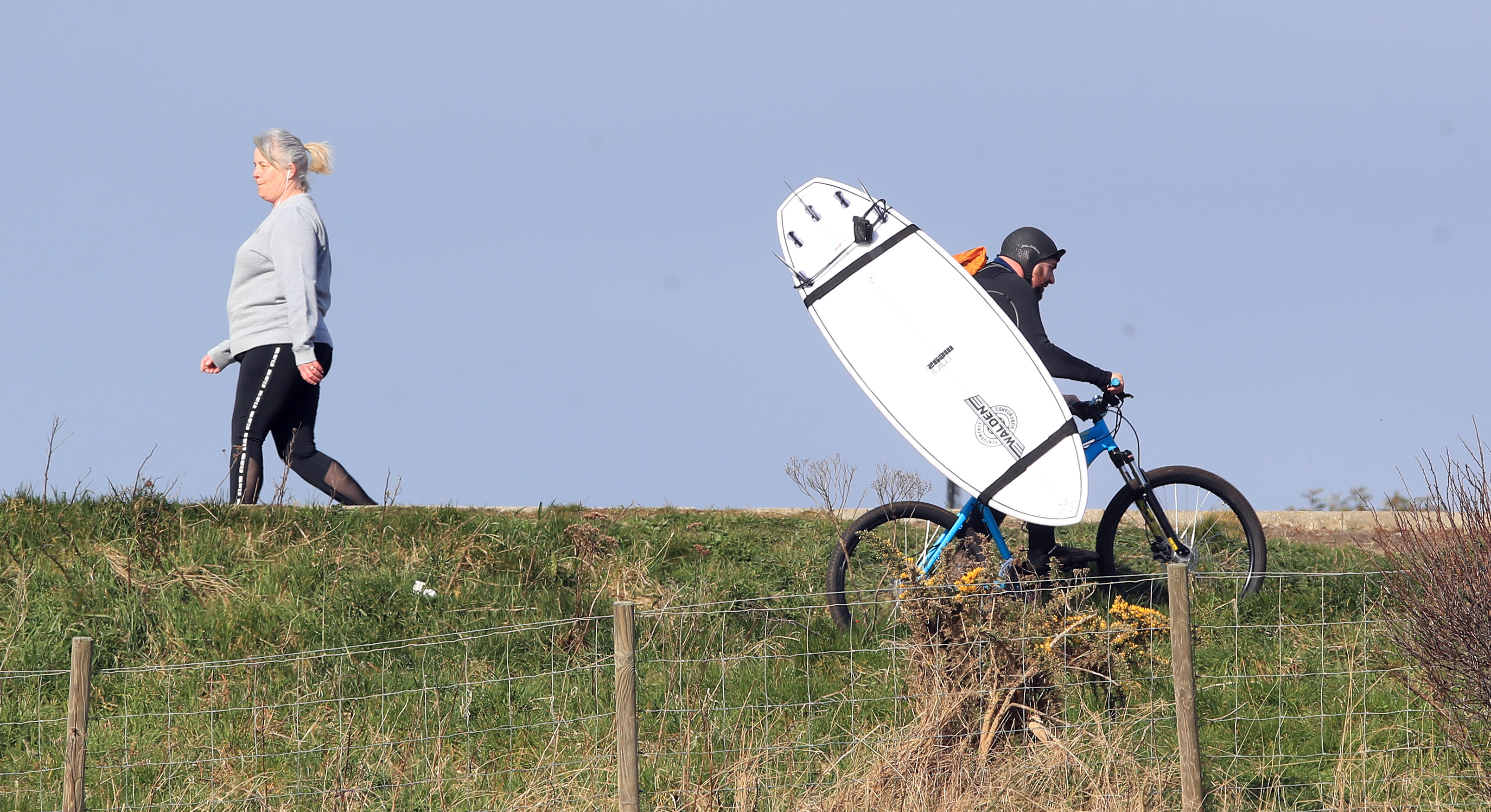Banished from the waves by the coronavirus crisis, Britain's surfing community is being forced to find increasingly creative ways to keep its lust for the sport alive.
From Tynemouth to Newquay, shut-up surf shops scatter the deserted promenades and only the bravest and hardiest of individuals are stretching lockdown laws to their limits in order to head into the ocean.
Multiple national champion Luke Dillon is not one of them. Instead of training for the forthcoming British Championships in Thurso, he is cooped up at his home in Cornwall, dreaming of an imminent return to the waves.

"I live a 10-minute drive from the beach so I've been at home for two weeks without being able to see the sea," Dillon told the PA news agency.
"In theory because surfing is my job I would be able to go out, but it doesn't feel like the right thing.
"Being at home is beginning to drive me mad. Surfing is not like other sports that you can still do in your back garden. It's really tough on the mental side of things too."

Elsewhere, stung by the inevitable postponement of the annual London Surf Film Festival, organisers decided to effectively take the event online, and have launched the Lockdown Surf Film Festival in its place.
The festival streams a series of major surfing movies for free in 48-hour windows, and the festival's proprietor, surfing author and editor Chris Nelson, said he hoped the programme will help ease surfers through the difficult times.
"We looked around and saw everyone sitting at home and we tried to think of a way of showing some films online and getting people stoked," said Nelson.

"Legally the rules suggest you can go surfing as your daily exercise. But a lot of the surf community think it's not the right vibe, and you're not going to feel great if you end up in casualty with a surfing injury."
The movies include thrilling footage of cold-water surfing in the wild north Atlantic in 'The Sea Lion', and retro, Californian body-surfing battles in this week's selected movie, 'Dirty Old Wedge'.
Shut-up shops and economic turmoil – surfing giant Hurley abruptly axed its professional team in January this year, even before the coronavirus crisis hit – are not what the sport expected when it was inaugurated into the Olympic roster for the first time ahead of the now-delayed Tokyo Games.

And while some are confident the sport's Olympics debut will help revitalise its associated industries, even among its staunch supporters there is a lingering fear of the potential perils of over-popularity.
"A lot of people have freaked about it but at the end of the day the surfing industry has taken a big hit recently, so I think being in the Olympics can only be a good thing," said Dillon, who hopes to resume his quest for a qualifying place.
Nelson, who also runs the film production and publishing company Approaching Lines, believes others in the sport have good reason to be more measured about the prospect.

"Ultimately, surfing is a limited resource – there are only a certain number of waves that are going to break and if you get to the point where too many people are in the water, it could be dangerous," he said.
"If you are going to have surfing in the Olympics you are going to be driving more people to surfing.
"I do feel like surfing has reached the point where it's as big as you could really support. If it is going to continue to grow, then it is going to have to do so in a responsible manner."
The Lockdown Surf Film Festival continues at lockdownsurffilmfestival.com
/https%3A%2F%2Fsportsmole-media-prod.s3.gra.io.cloud.ovh.net%2F22%2F25%2Fnikita-mazepin.jpg)
/https%3A%2F%2Fsportsmole-media-prod.s3.gra.io.cloud.ovh.net%2F23%2F08%2Feilanh.jpg)
/https%3A%2F%2Fsportsmole-media-prod.s3.gra.io.cloud.ovh.net%2F22%2F51%2Flyu-xiaojun.jpg)
/https%3A%2F%2Fsportsmole-media-prod.s3.gra.io.cloud.ovh.net%2F23%2F40%2Fsimone-biles_1.jpg)
/https%3A%2F%2Fsportsmole-media-prod.s3.gra.io.cloud.ovh.net%2F20%2F15%2Folympics-rings.jpg)
/https%3A%2F%2Fsportsmole-media-prod.s3.gra.io.cloud.ovh.net%2F16%2F36%2Flee-pearson.jpg)